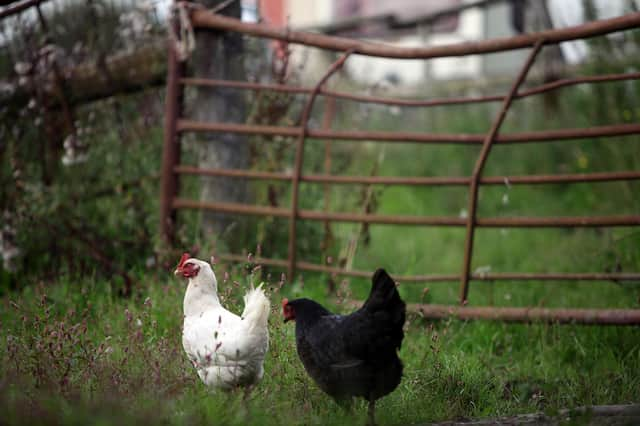Avian flu could see free-range farming of turkeys, chickens and eggs decline rapidly – Stephen Jardine


By the time we walked back an hour later, it was dead, just one of the many victims of bird flu we saw on that coast last weekend. If Covid is relaxing it’s grip on human health, bird flu has our avian population by the throat.
Although the disease has been around for a century, the current strain spreads more easily and is more deadly. It’s estimated 160 million domestic birds have perished in the current outbreak. The seabird fatalities I witnessed are on top of that and it’s believed more than 80 species have been affected with 40 per cent of the Skua population in Scotland wiped out.
Advertisement
Hide AdAdvertisement
Hide AdAlthough the risk of the disease being passed to humans is rare, it’s consequences are now being felt. This week we learned half of the free-range turkeys produced for Christmas in the UK have been culled or died from bird flu.
According to the British Poultry Council, about 600,000 of 1.3 million birds have been lost. In France and Germany, trials of a vaccine have started to limit the outbreak and scientists hope restrictions on poultry movements will also make a difference, but one thing is certain, there will be a severe shortage of free-range turkeys this Christmas.
Of the ten million birds that will end up on the dining table on December 25, the vast majority are intensively reared but growing awareness of animal welfare has led to increasing numbers of consumers paying more for a free-range bird.
This year that premium could be extra expensive. With supplies limited, price rises are expected and that is the last thing anyone needs in a cost-of-living crisis. According to a survey for the Salvation Army, two-thirds of adults are worried about being able to afford the cost of Christmas dinner this year.
Once the festive season is over, poultry producers will have to sit down and count the cost of bird flu. Some have lost most of their flocks and will think long and hard about the investment required to rebuild.
Egg producers are also suffering. Over 750,000 hens have had to be culled due to bird flu since October 1 but, according to the British Free Range Egg Producers Association, the biggest issue is the failure of the big supermarkets to pay a sustainable price to farmers.
Faced with grain feed costs up 50 per cent since Russia’s invasion of Ukraine and soaring fuel and energy bills, many are not restocking because it simply isn’t worth it. A third of egg producers are said to have cut back on production or left the industry because the sums just don’t add up any more.
The worry is that higher welfare, free-range production will wither as farmers turn back to sheds and more intensive indoor rearing where flocks are more easily protected. That would be bad news for customers who prefer to buy free range, for farmers who’ve invested in that form of production for years and most importantly, for the birds who generally live longer and happier lives. It’s yet another reminder of how viruses continue to shape so many aspects of our lives.
Comments
Want to join the conversation? Please or to comment on this article.